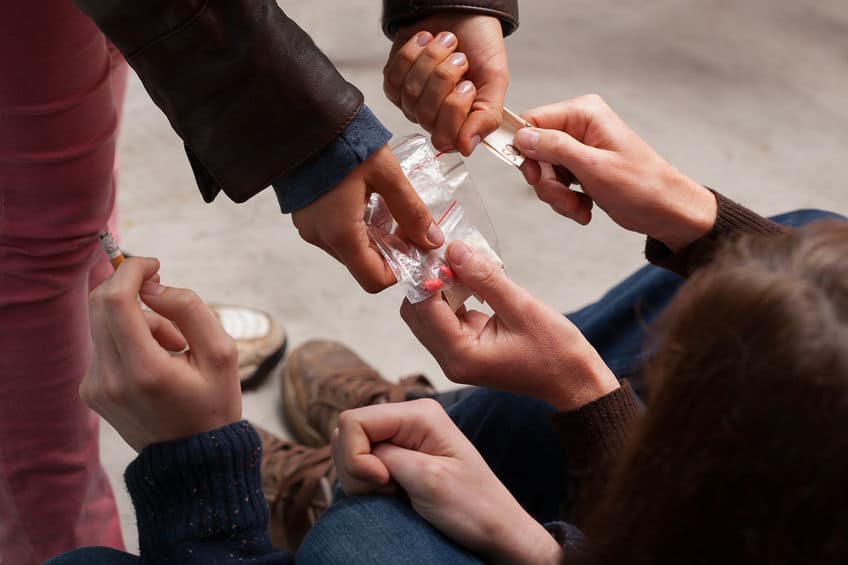
Three Drugs That Can Turn Your Teenager Into An Addict
July 27, 2017
In the United States, teen drug addiction is a significant problem impacting countless youths. Teenagers can fall victim to addiction that can impact them for the rest of their lives. The addiction can effect their behavior, education, family involvement, friendships and their overall physical health.
Causes For Teen Drug Addiction
Rarely can the cause of teen drug experimentation be narrowed down to one, but is typically the result of a number of social, mental and psychological factors. It is crucial for parents and relatives to pay attention to any issues their teen is facing because the end result could end in drug use and possibly addiction. These factors include, but are not limited to:
Peer Pressure
Often, young people feel the pressure to engage in the activities their friends and peers are partaking in as a means of increasing their social network or, in some cases, just to fit in.
Mood Improvement
For some teenagers, drugs will provide a feeling of pleasure and excitement they cannot receive from participating in other endeavors.
Stress Relief
Particularly in the case of young people dealing with mental health issues such as anxiety and/or depression, drugs might serve as an elixir to relieve tension and worry.
Alleviation of Boredom
In certain instances, teens may use drugs as a way to become adventurous and escape what they perceive to be a mundane routine.
Improve Academic or Athletic Performance
Young people struggling to achieve good grades, or those wishing to be the best students or athletes might turn to drugs as a means of improving their energy levels and strengthening their competitive edges.
Emulation of Adults
Some teens are greatly impacted by the behaviors of adults and may be lulled into falling prey to the notion that if an adult uses drugs, the behavior is acceptable.
Rebellion
Adolescents from strict or tough upbringings may use drugs as a means of taking a defiant, rebellious stance against what they perceive to be overbearing or tyrannical forces.
Signs A Teen May Be Abusing or Addicted To Drugs:
 Typically, several red flag signs will alert parents to the fact their teens may have a problem with a particular substance. It is important to be on the lookout for issues such as:
Typically, several red flag signs will alert parents to the fact their teens may have a problem with a particular substance. It is important to be on the lookout for issues such as:
- Stealing
- Dramatic drop in grades or interest in school
- Change in friends
- Isolation from family or peers
- Getting into trouble at school or, quite possibly, with local law enforcement
- Increasing strained relationship with family members
- Lack of interest in activities he or she used to enjoy
Three Common Drugs Teens Become Addicted To:
While teens could use and become addicted to a host of substances, alcohol, opioid pain killers like Vicodin and amphetamines such as Crystal Meth are among the most common.
Alcohol
Among the biggest reasons why alcohol is so abused by teens lies in the drug’s availability. Though teens are not legally old enough to purchase alcohol, varying products of the drug can be found in the fridges and liquor cabinets in the homes of their parents, as well as that of their friends parents. Overuse of alcohol can have long-term impacts on a number of bodily components, including the liver, digestive tracts and the cardiovascular system. In addition, since a teen’s brain is not fully developed, alcohol abuse can lead to mental health issues and potentially irreversible brain damage.
Alcohol addicts can suffer from numerous withdrawal symptoms, which can include:
- Shaking
- Hallucinations
- Vomiting
- Weight loss
- Alterations in sleeping habits
- Mood fluctuations
These manifestations can vary in intensity depending upon the severity of the addiction.
Opioids
These drugs, like Vicodin are readily sold on the streets. In some cases, pain killer addictions come about after being legally prescribed the drug by a physician and becoming hooked. Drugs like Vicodin impact a user’s nervous system and withdrawal from this substance may cause:
- Confusion
- Restlessness
- Anxiety
- Depression
Amphetamines (Meth)
Drugs such as meth can be produced from a number of common materials and are often produced by people whom the teen may know and have access to. Amphetamines, like meth, stimulate the brain’s production of the chemical dopamine, which is, in part, responsible for making people feel pleasure. Meth and similar substances cause a teen’s dopamine production to skyrocket and results in an addict feeling a sense of euphoria.
Withdrawal causes manifestations, such as:
- Paranoia
- Euphoria
- Excessive talking
- Weight loss
- Mood swings
- Anxiety
- Tremors
- Aggression
- Violent Outbursts
As you can see, addiction to drugs can have extremely detrimental affects to the addict and those close to the person, including the family. This is why it can be imperative that the addict receive the help that they need to beat the addiction.
Should your teen become hooked on one of these, or any other drug, they will likely need to participate in a treatment program to overcome their addictions. Fortunately, teen-specific treatment centers like Hillcrest are equipped with a trained staff of experienced professionals that can help.

